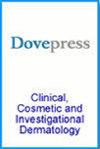探索免疫细胞与非瘢痕性脱发之间的关系:孟德尔随机研究
IF 2.2
4区 医学
Q3 DERMATOLOGY
引用次数: 0
摘要
背景:非瘢痕性脱发(NSHL)是一个全球性的健康问题,由于生活方式的改变和人口老龄化,其发病率越来越高。它可导致心理困扰并影响生活质量:本研究旨在利用双样本孟德尔随机化(MR)分析确定 NSHL 与免疫细胞表型之间的关联,为未来基于免疫的 NSHL 治疗提供见解:我们从 IEU Open GWAS 项目中获得了免疫细胞数据,并从同一数据库中获得了 NSHL 数据,利用 MR 分析评估了每种免疫表型与 NSHL 之间的因果关系。研究采用了三种统计方法:MR-Egger回归法、加权中值估计法和逆方差加权法(IVW):结果:核磁共振成像发现了31种与NSHL相关的免疫细胞表型。其中,19 种免疫细胞表型与 NSHL 呈负相关,表明其具有保护作用。其余 12 种免疫细胞表型为正相关。敏感性分析表明,所有MR结果都是可靠的:这些发现突显了 NSHL 与免疫之间的明显相关性,表明某些免疫细胞表型具有重要作用。这项研究为治疗 NSHL 的免疫疗法提供了一个新方向。本文章由计算机程序翻译,如有差异,请以英文原文为准。
Exploring the Relationship Between Immune Cells and Non-Scarring Hair Loss: A Mendelian Randomization Study
Background: Non-scarring hair loss (NSHL) is a global health concern with increasing prevalence due to lifestyle changes and an aging population. It can cause psychological distress and affect quality of life.
Objective: This study aimed to identify the associations between NSHL and immune cell phenotypes using a two-sample Mendelian randomization (MR) analysis, offering insights for future immune-based therapies for NSHL.
Methods: We obtained immunocyte data from the IEU Open GWAS Project and NSHL data from the same database and used MR analysis to evaluate the causal association between each immunophenotype and NSHL. Three statistical methods were employed: the MR-Egger regression, weighted median estimation, and inverse variance weighting (IVW).
Results: The MR resonance imaging identified 31 immunocyte phenotypes associated with NSHL. Among these, 19 immunocyte phenotypes were negatively associated with NSHL, indicating their protective effects. The remaining 12 immunocyte phenotypes were positive association. Sensitivity analyses suggested the robustness of all MR findings.
Conclusion: These findings highlight a clear correlation between NSHL and immunity, demonstrating the significant role of certain immune cell phenotypes. This study offers a new direction for immune-based therapies in the treatment of NSHL.
Objective: This study aimed to identify the associations between NSHL and immune cell phenotypes using a two-sample Mendelian randomization (MR) analysis, offering insights for future immune-based therapies for NSHL.
Methods: We obtained immunocyte data from the IEU Open GWAS Project and NSHL data from the same database and used MR analysis to evaluate the causal association between each immunophenotype and NSHL. Three statistical methods were employed: the MR-Egger regression, weighted median estimation, and inverse variance weighting (IVW).
Results: The MR resonance imaging identified 31 immunocyte phenotypes associated with NSHL. Among these, 19 immunocyte phenotypes were negatively associated with NSHL, indicating their protective effects. The remaining 12 immunocyte phenotypes were positive association. Sensitivity analyses suggested the robustness of all MR findings.
Conclusion: These findings highlight a clear correlation between NSHL and immunity, demonstrating the significant role of certain immune cell phenotypes. This study offers a new direction for immune-based therapies in the treatment of NSHL.
求助全文
通过发布文献求助,成功后即可免费获取论文全文。
去求助
来源期刊

Clinical, Cosmetic and Investigational Dermatology
Medicine-Dermatology
CiteScore
2.80
自引率
4.30%
发文量
353
审稿时长
16 weeks
期刊介绍:
Clinical, Cosmetic and Investigational Dermatology is an international, peer-reviewed, open access journal that focuses on the latest clinical and experimental research in all aspects of skin disease and cosmetic interventions. Normal and pathological processes in skin development and aging, their modification and treatment, as well as basic research into histology of dermal and dermal structures that provide clinical insights and potential treatment options are key topics for the journal.
Patient satisfaction, preference, quality of life, compliance, persistence and their role in developing new management options to optimize outcomes for target conditions constitute major areas of interest.
The journal is characterized by the rapid reporting of clinical studies, reviews and original research in skin research and skin care.
All areas of dermatology will be covered; contributions will be welcomed from all clinicians and basic science researchers globally.
 求助内容:
求助内容: 应助结果提醒方式:
应助结果提醒方式:


